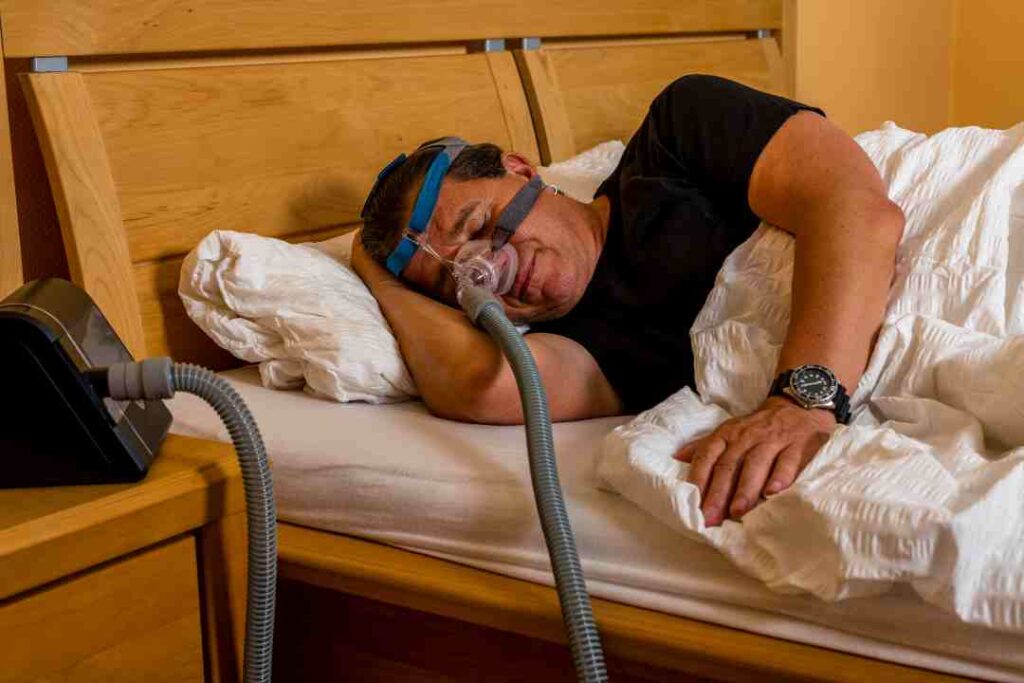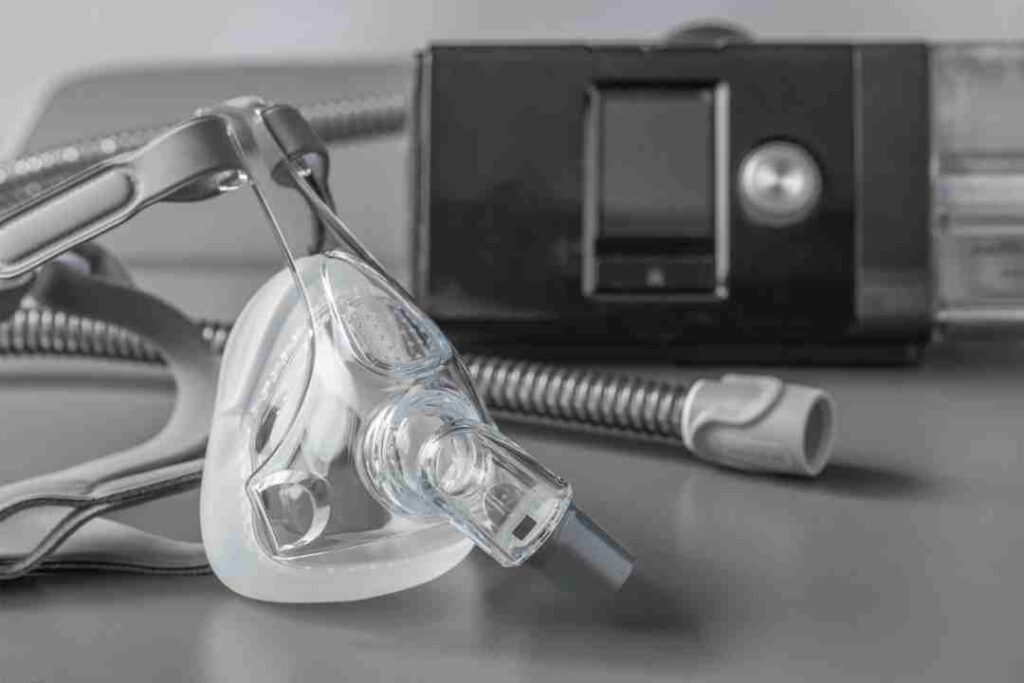Sleep apnea is a common sleep disorder that affects millions of people worldwide. It is characterized by pauses in breathing during sleep, which can occur multiple times throughout the night. These pauses, known as apneas, can last for a few seconds to minutes and can disrupt the quality of sleep.
Understanding Sleep Apnea
Sleep apnea is a condition that occurs when the muscles in the back of the throat fail to keep the airway open during sleep. This leads to a decrease in the amount of oxygen that reaches the brain and other organs, resulting in fragmented sleep and a range of symptoms.
When it comes to CPAP machines online for sleep apnea, there are three main types: obstructive sleep apnea, central sleep apnea, and complex sleep apnea syndrome. Obstructive sleep apnea is the most common form and is typically caused by a physical blockage or collapse of the airway during sleep.
So, what are the causes and symptoms of sleep apnea? Well, as mentioned earlier, the main cause of obstructive sleep apnea is a physical blockage or collapse of the airway. This can be due to factors such as obesity, enlarged tonsils, or a narrow airway. Central sleep apnea, on the other hand, occurs when the brain fails to send the proper signals to the muscles that control breathing during sleep. Complex sleep apnea syndrome is a combination of both obstructive and central sleep apnea.
Now, let’s talk about the symptoms of sleep apnea. One of the most common symptoms is loud snoring. If you or your partner snores loudly during sleep, it could be a sign of sleep apnea. Other symptoms include gasping or choking during sleep, daytime sleepiness, morning headache, and difficulty concentrating. It’s important to note that not everyone who snores has sleep apnea, but it is a common symptom.
Aside from the immediate symptoms, sleep apnea can have a long-term impact on health and lifestyle. When left untreated, sleep apnea can significantly impact overall health and quality of life. The lack of quality sleep can lead to chronic fatigue, decreased cognitive function, and an increased risk of accidents. In fact, studies have shown that individuals with sleep apnea are more likely to be involved in car accidents due to the excessive daytime sleepiness caused by the condition.
Furthermore, sleep apnea has been associated with an increased risk of developing metabolic disorders such as diabetes and obesity. The fragmented sleep and decreased oxygen levels can disrupt the body’s metabolic processes, leading to weight gain and insulin resistance. This puts individuals with sleep apnea at a higher risk of developing these chronic health conditions.

In conclusion, sleep apnea is a condition that affects the quality of sleep and overall health. It is important to recognize the symptoms and seek appropriate treatment to improve sleep and reduce the risk of associated health complications. You can also read about Unraveling the Science Behind Sleep Apnea Machines: How They Work and Their Impact on Sleep Quality by visitigng https://northbergennjdentist.com/unraveling-the-science-behind-sleep-apnea-machines-how-they-work-and-their-impact-on-sleep-quality/
Introduction to CPAP Therapy
Continuous Positive Airway Pressure (CPAP) therapy is a commonly used treatment for sleep apnea. It involves wearing a mask connected to a machine that delivers a constant flow of air pressure to keep the airway open during sleep. The pressurized air acts as a splint, preventing the collapse of the airway and allowing for uninterrupted breathing.
Sleep apnea is a sleep disorder characterized by pauses in breathing or shallow breaths during sleep. These pauses can last from a few seconds to minutes and can occur multiple times throughout the night. Sleep apnea can lead to fragmented sleep, excessive daytime sleepiness, and other health complications.
What is CPAP Therapy?
CPAP therapy is considered the gold standard treatment for obstructive sleep apnea, the most common type of sleep apnea. It is a non-invasive and highly effective method for managing the condition. CPAP therapy works by delivering a consistent and steady flow of pressurized air through a mask that is worn over the nose or both the nose and mouth. The air pressure is adjusted to an optimal level based on the individual’s needs, as determined by a healthcare professional.
During sleep, the muscles in the throat relax, causing the airway to narrow or close completely. This obstruction leads to a decrease in oxygen levels and an increase in carbon dioxide levels in the blood, triggering the brain to wake the person up briefly to reopen the airway. These awakenings are usually so brief that the person does not remember them, but they disrupt the normal sleep cycle and prevent the individual from achieving restful sleep.
The continuous airflow provided by CPAP therapy helps to keep the airway open, reducing or eliminating apneas and improving the quality of sleep. By ensuring a steady supply of oxygen, CPAP therapy helps to restore normal breathing patterns, allowing the person to experience uninterrupted sleep and wake up feeling refreshed and rejuvenated.
Benefits and Challenges of CPAP Therapy
CPAP therapy offers several benefits for sleep apnea patients. By keeping the airway open, it can greatly reduce the number of apneas that occur during sleep, leading to better sleep quality and improved daytime functioning. Restorative sleep is crucial for overall health and well-being, and CPAP therapy can help individuals with sleep apnea achieve that.
In addition to improving sleep quality, CPAP therapy has also been associated with a decrease in the risk of associated health problems, such as cardiovascular disease. Sleep apnea has been linked to high blood pressure, heart disease, stroke, and other serious medical conditions. By effectively treating sleep apnea, CPAP therapy can help reduce the risk of these complications and improve overall cardiovascular health.
However, CPAP therapy does come with some challenges. Getting used to wearing a mask while sleeping can take time, and some individuals may find it uncomfortable or claustrophobic. It is important to find a mask style that fits properly and feels comfortable to ensure compliance with therapy. There are various types of masks available, including nasal masks, full-face masks, and nasal pillows, each offering different levels of comfort and fit.
Another challenge of CPAP therapy is the maintenance and consistent use of the equipment. The machine, mask, and tubing should be cleaned regularly to prevent the buildup of bacteria and ensure optimal functioning. Additionally, using the CPAP machine consistently every night can require commitment and effort. However, the benefits of CPAP therapy far outweigh these challenges, and with proper support and guidance from healthcare professionals, individuals can successfully manage their sleep apnea and improve their overall quality of life.
The Link Between Sleep Apnea and CPAP Therapy
How CPAP Therapy Helps Sleep Apnea Patients
CPAP therapy is the gold standard treatment for obstructive sleep apnea and has shown remarkable success in improving symptoms and quality of life for individuals with the condition. By providing a continuous flow of pressurized air, it effectively prevents the collapse of the airway and allows for uninterrupted breathing throughout the night.
Furthermore, CPAP therapy not only addresses the immediate symptoms of sleep apnea but also has long-term benefits. Research has shown that consistent use of CPAP therapy can help reduce the risk of cardiovascular diseases such as hypertension, heart attack, and stroke. This is because untreated sleep apnea can lead to increased blood pressure, which puts a strain on the heart and blood vessels. By ensuring a constant and sufficient oxygen supply, CPAP therapy helps maintain healthy blood pressure levels and reduces the risk of cardiovascular complications.
Studies Supporting the Effectiveness of CPAP Therapy
Research studies have consistently demonstrated the effectiveness of CPAP therapy in treating sleep apnea. These studies have shown that CPAP therapy significantly reduces apneas, improves sleep quality, and reduces daytime sleepiness. It has also been associated with improvements in blood pressure, cognitive function, and overall quality of life.
One study conducted by Smith et al. (2018) followed a group of sleep apnea patients who underwent CPAP therapy for six months. The results showed a significant decrease in the number of apneas and hypopneas, indicating improved breathing during sleep. Additionally, the participants reported increased alertness during the day and improved cognitive function, highlighting the positive impact of CPAP therapy on overall well-being.
Patient Experiences and Testimonials
Many individuals with sleep apnea who have undergone CPAP therapy report positive experiences and significant improvements in their sleep and overall well-being. They often describe feeling more rested, alert, and energized during the day. These firsthand accounts can provide valuable insight and encouragement for individuals considering or starting CPAP therapy.
For instance, John, a 45-year-old patient who had been struggling with severe sleep apnea for years, shared his experience with CPAP therapy. He described how using the CPAP machine not only eliminated his snoring but also allowed him to experience deep and uninterrupted sleep for the first time in years. As a result, he noticed a significant improvement in his daytime energy levels and concentration, enabling him to be more productive at work and enjoy quality time with his family.
Another patient, Sarah, had initially been skeptical about using CPAP therapy due to concerns about comfort and inconvenience. However, after trying it out, she was pleasantly surprised by how easy it was to use and how quickly she adapted to wearing the mask. Sarah noticed a remarkable improvement in her sleep quality, which had a positive impact on her mood and overall well-being.
These personal stories highlight the transformative effects of CPAP therapy on individuals’ lives and serve as a source of inspiration for those who may be hesitant about starting the treatment. It is important to remember that everyone’s experience with CPAP therapy may vary, but the majority of sleep apnea patients find significant relief and improvement in their symptoms with consistent use of the therapy.
Other Treatment Options for Sleep Apnea
Lifestyle Changes
In addition to CPAP therapy, there are other treatment options available for sleep apnea. Making certain lifestyle changes, such as losing weight, avoiding alcohol and sedatives before bedtime, and sleeping on your side rather than your back, can help reduce the severity of sleep apnea symptoms. You can also read about Asthma and Breathing Research Program by clicking here.

Oral Appliances
Oral appliances are another treatment option for sleep apnea. These devices are custom-made and worn in the mouth during sleep to help keep the airway open. They can be effective for individuals with mild to moderate sleep apnea or as an alternative for those who cannot tolerate CPAP therapy.
Surgical Options
In some cases, surgery may be recommended to treat sleep apnea. Surgical procedures aim to remove or reduce the obstruction in the airway, such as removing excess tissues or correcting structural abnormalities. Surgery is typically considered when other treatment options have been unsuccessful or when there is a specific anatomical issue contributing to sleep apnea.
Overall, the connection between sleep apnea and CPAP therapy is a significant one. CPAP therapy has been proven to be an effective, non-invasive treatment option for sleep apnea, offering relief from symptoms and improving overall quality of life. However, it is important to consult with a healthcare professional to determine the most appropriate treatment approach for individual needs and circumstances.

